7 best foods for healthy joints

The discomforts and soreness that come with getting older might be on the horizon, but you don’t have to let stiff and tender joints ruin your future. By gaining some knowledge, certain foods have the potential to enhance your joint health and alleviate joint pain.
A joint refers to the point where two or more bones meet, facilitating movement. Joints consist of bones, a protective cartilage layer, muscles, ligaments, and synovial fluid. Each of these components plays a role in enabling pain-free mobility.
Preserving the well-being of your joints is crucial in order to prevent or postpone the development of osteoarthritis. A well-balanced and nourishing diet serves as the foundation for promoting joint health. In fact, specific nutrients have been proven to alleviate pain, enhance joint flexibility, reduce inflammation, sustain joint lubrication, and fortify bones and muscles.
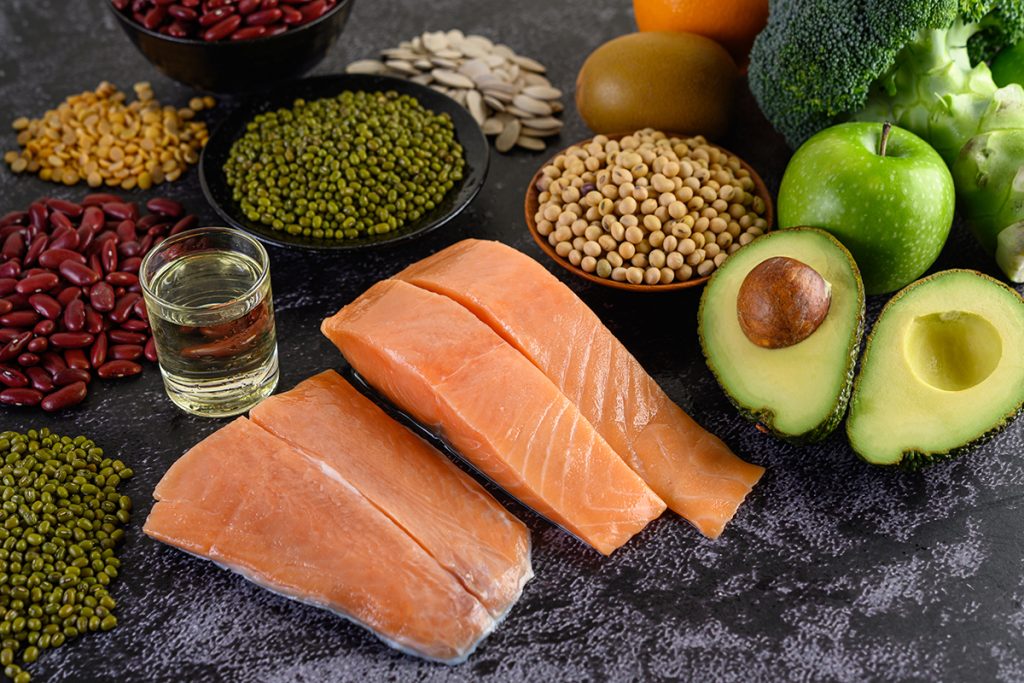
How to apply a joint-friendly diet
While there exist numerous essential nutrients that contribute to joint health, adopting a well-rounded diet is ultimately the most beneficial approach for maintaining pain-free joints in the long run. The USDA MyPlate serves as a visual guide for constructing a balanced meal, emphasizing the importance of incorporating protein and fiber-rich carbohydrates. It is essential to include a diverse array of fruits and vegetables in order to ensure a joint-friendly diet. This not only assists in sustaining a healthy body weight, but also minimizes the strain on your joints and bones.
Diets abundant in healthy fats, such as omega-3 fatty acids, play a significant role in preventing and reducing inflammation, as well as alleviating pain and swelling in tender joints. Moreover, high-fiber carbohydrates, along with fruits and vegetables, contain antioxidants, vitamins, minerals, and fiber that directly combat inflammation in the body when required.
Experiencing joint pain can significantly disrupt your daily routine. Fortunately, there are simple methods to enhance and sustain the well-being of your joints. By incorporating a variety of delectable and nutrient-rich foods, as outlined below, into your diet, you can supply your joints with the essential nourishment they require to operate optimally and without discomfort.
7 scientifically supported foods that promote healthy joints
Salmon
Abundant in omega-3 fatty acids, fatty fish like salmon, mackerel, and sardines offer a plethora of benefits. These healthy fats possess remarkable anti-inflammatory properties and can be particularly advantageous for individuals experiencing joint pain or those afflicted by osteoarthritis, a condition characterized by the deterioration of cartilage within joints.
Considering that joint health is significantly influenced by inflammation specific to joints, it is essential to incorporate anti-inflammatory omega-3 fatty acids into your diet. A meta-analysis revealed that regular consumption of fatty fish, such as salmon, at least twice a week, led to reduced rheumatoid arthritis activity and even lowered the risk of developing the condition altogether.
Additionally, other sources of omega-3s include walnuts, chia seeds, and flaxseeds.
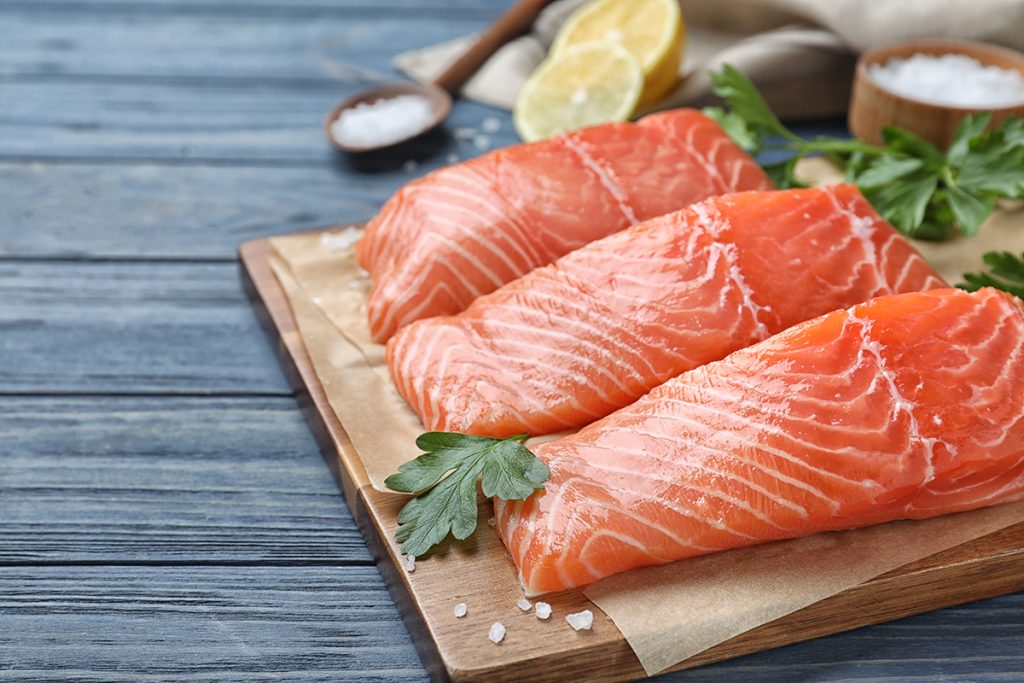
Spinach
Leafy greens, such as spinach, broccoli, and kale, are abundant in antioxidants that play a crucial role in suppressing joint inflammation and alleviating symptoms associated with rheumatoid arthritis. These vegetables are particularly beneficial due to their high content of phytochemicals, which effectively combat free radicals and shield against oxidative damage.
Furthermore, a variety of other vegetables and fruits also serve as excellent sources of phytochemicals and antioxidants. These include broccoli, kale, turnips, carrots, celery, and pears.
Blueberries
Blueberries, a remarkably nutritious fruit bursting with phytonutrients and antioxidants, offer a multitude of health benefits. The polyphenols and flavonoids found in blueberries act as protective agents against degenerative diseases, including those linked to joint pain, by effectively reducing inflammation. Additionally, blueberries have the potential to safeguard against bone loss and enhance bone density as you grow older.
Moreover, there are several other fruits that serve as excellent sources of phytonutrients and antioxidants. These include blackberries, strawberries, raspberries, and cranberries.
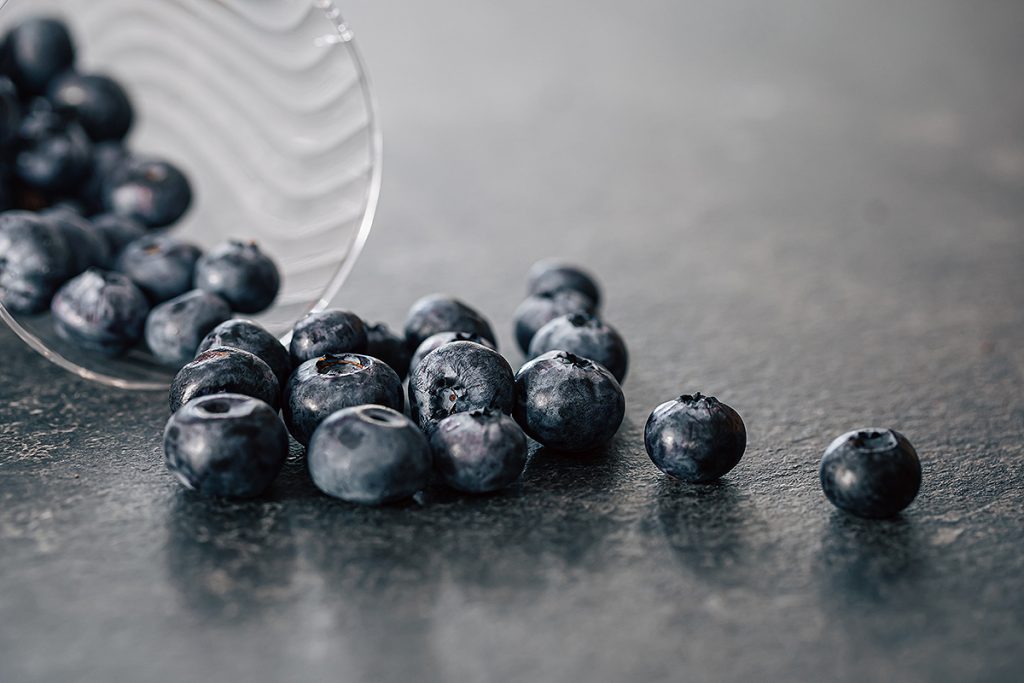
Flaxseeds
Flaxseeds represent a fantastic source of omega-3 fatty acids and vitamin E. In fact, among plant-based options, flaxseeds are considered the top source of omega-3s.
Studies indicate that vitamin E might have the potential to hinder cartilage degeneration and alleviate joint pain in individuals with osteoarthritis. By combating oxidative stress and reducing inflammation in the joints, vitamin E may impede the progression of osteoarthritis.
Omega-3 fatty acids play a crucial role in suppressing the inflammatory response, thus safeguarding against joint deterioration and associated conditions. Other nutrient-rich nuts and seeds that offer similar benefits include chia seeds, walnuts, and almonds.
Oatmeal
High-fiber whole grains, such as oatmeal, brown rice, and quinoa, possess potent anti-inflammatory properties that contribute to overall well-being and support joint health.
A single serving (1 cup) of oatmeal provides approximately 4 grams of dietary fiber. A study conducted on individuals with rheumatoid arthritis and those at risk examined the prevalence of imbalanced gut microbiota. The findings suggest that incorporating fiber-rich whole grains, like oatmeal, can help restore symbiosis in the gut and enhance the body’s immune response.
Additionally, there are several other whole grains worth considering, such as brown rice, quinoa, barley, buckwheat, and farro.
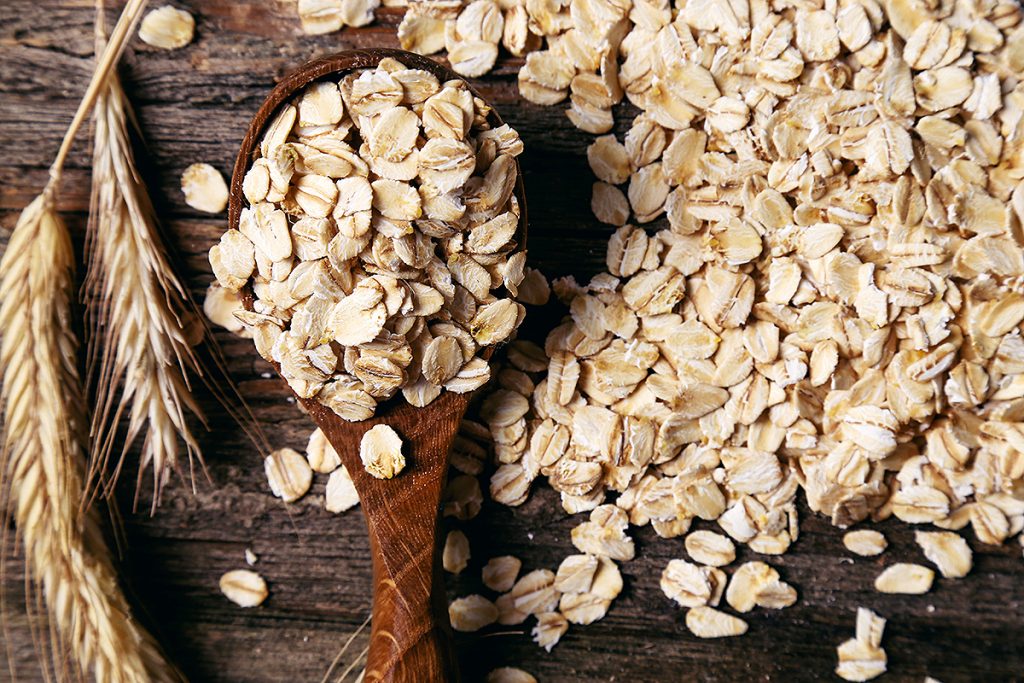
Turmeric
Turmeric, a plant with a long history of medicinal use, has garnered increasing attention from researchers over the past 35 years. Curcumin, the prominent nutrient found in turmeric, stands out in particular.
Both turmeric and curcumin exhibit remarkable anti-inflammatory properties and have been utilized for centuries to alleviate joint pain. Scientific studies suggest that curcumin indeed provides pain relief for individuals suffering from osteoarthritis.
Green Tea
Among various types of tea, green tea boasts the highest concentration of antioxidants. Notably, green tea contains catechins, a specific type of antioxidant that holds the potential to diminish inflammation and safeguard cartilage against additional degradation.
A study discovered that the antioxidant and anti-inflammatory effects of green tea led to a reduction in disease activity among participants diagnosed with rheumatoid arthritis.
Furthermore, there are other foods that serve as excellent sources of catechins, including matcha, apples, apricots, and strawberries.

Additional tips for a better joint health
Though your diet is an important link to maintaining healthy joints, lifestyle factors may be of greater concern. Take a few moments to evaluate your habits and use these tips for joint health.
Maintain an active lifestyle
Making a conscious effort to engage in regular physical activity can contribute to keeping your joints free from pain. Muscle weakness and a sedentary way of life are factors that increase the risk of developing osteoarthritis. It is important to minimize sedentary behavior by taking breaks from sitting.
Stand up, move around, and take a short walk every hour, or dedicate 30 minutes to low-intensity exercise on most days of the week. By staying active, you can help promote joint health and reduce the likelihood of joint-related discomfort.
Engage in strength training
As you grow older, muscle loss becomes a natural occurrence. However, it’s important to note that muscle weakness and degeneration pose risks to joint health. On the flip side, weight-bearing exercises such as lifting weights can help combat muscle loss, enhance strength, and minimize bone loss.
These factors collectively play a significant role in promoting healthy joints. Therefore, incorporating regular strength training into your routine can prove beneficial for maintaining joint health and overall well-being.

Manage stress levels
It’s worth noting that stress, anxiety, and depression can contribute to joint pain. To mitigate their impact, it is crucial to proactively find ways to reduce stress on a daily basis. Consider incorporating the following stress relief strategies into your routine: dedicate ten minutes to meditation, indulge in reading your favorite book.
Or listening to soothing music, take a leisurely walk, engage in meaningful conversations with friends, or seek support from a healthcare professional, such as a therapist. By prioritizing stress reduction, you can help alleviate its potential negative effects on your joints and overall well-being.
Sustain an optimal body weight
Carrying excessive body weight places strain on your joints, increasing the likelihood of experiencing joint pain. Prioritize nourishing your body with well-balanced meals and snacks that support a healthy body weight, thereby reducing the risk of joint deterioration. By focusing on maintaining an appropriate weight, you can promote the well-being of your joints and minimize the potential discomfort associated with excess weight.
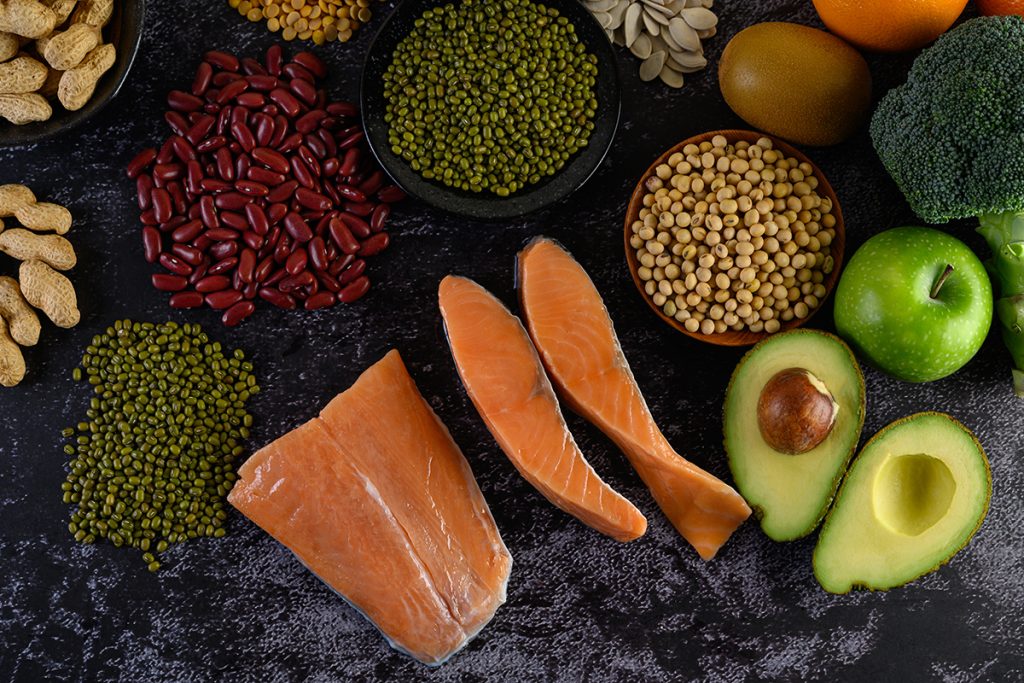
7 best foods for healthy joints conclusion
It is crucial to have a well-rounded diet that includes ample amounts of beneficial fats, fiber, vitamins, minerals, and antioxidants in order to keep your joints healthy. Although there is no miraculous solution, integrating these nutritious foods into your weekly eating habits can alleviate pain and minimize future discomfort. Prior to modifying your diet, remember to consult with a healthcare expert to address any concerns you may have.



















